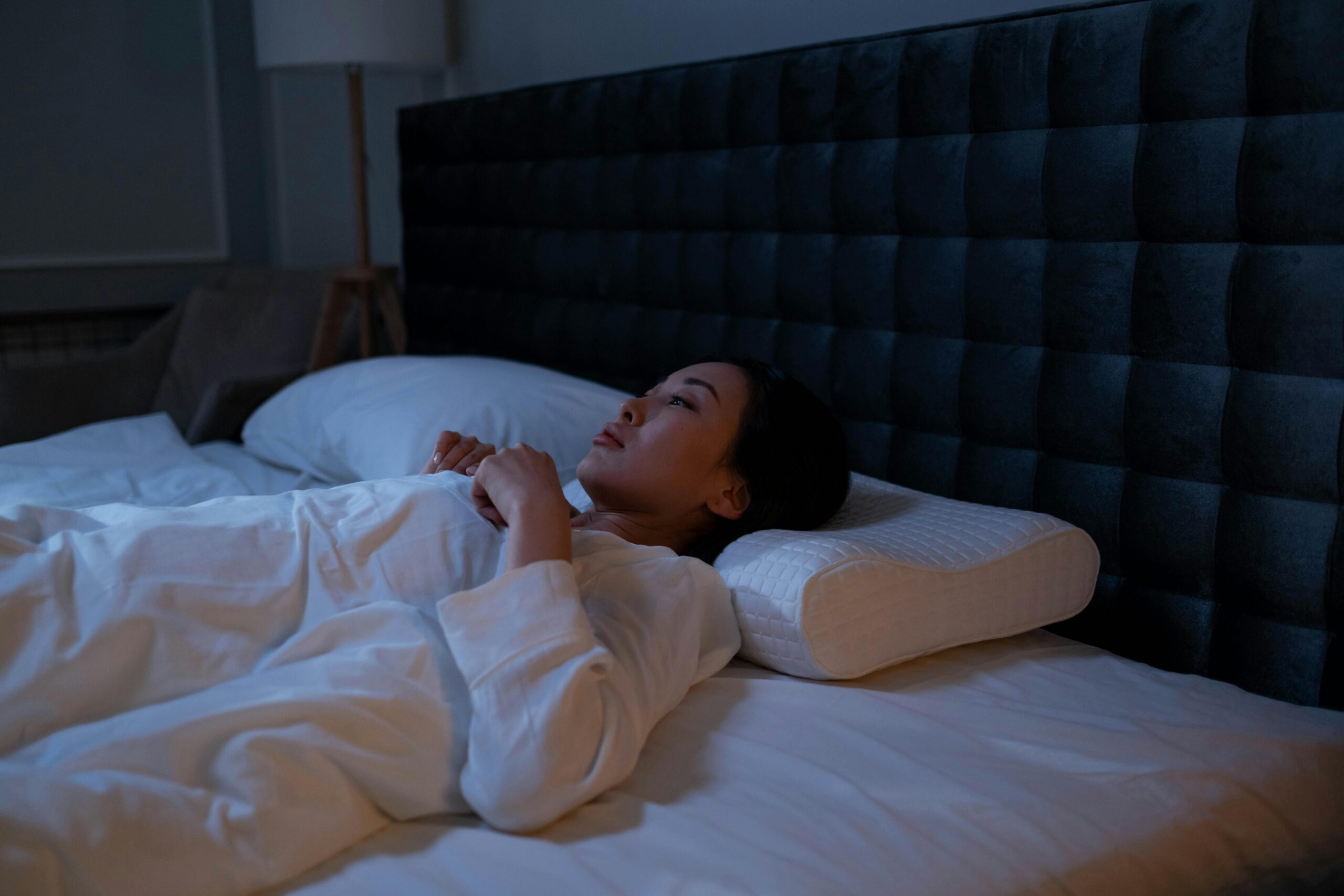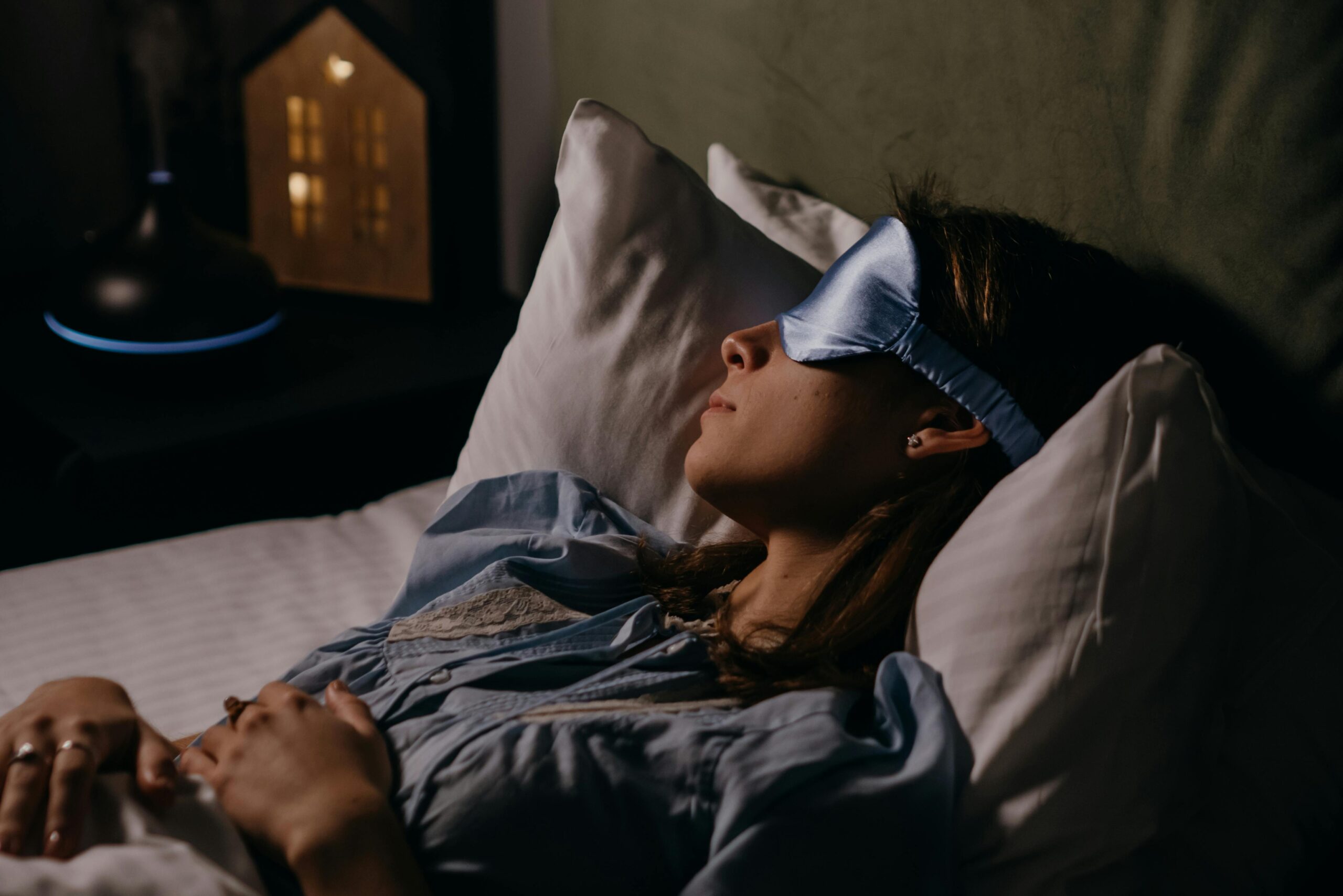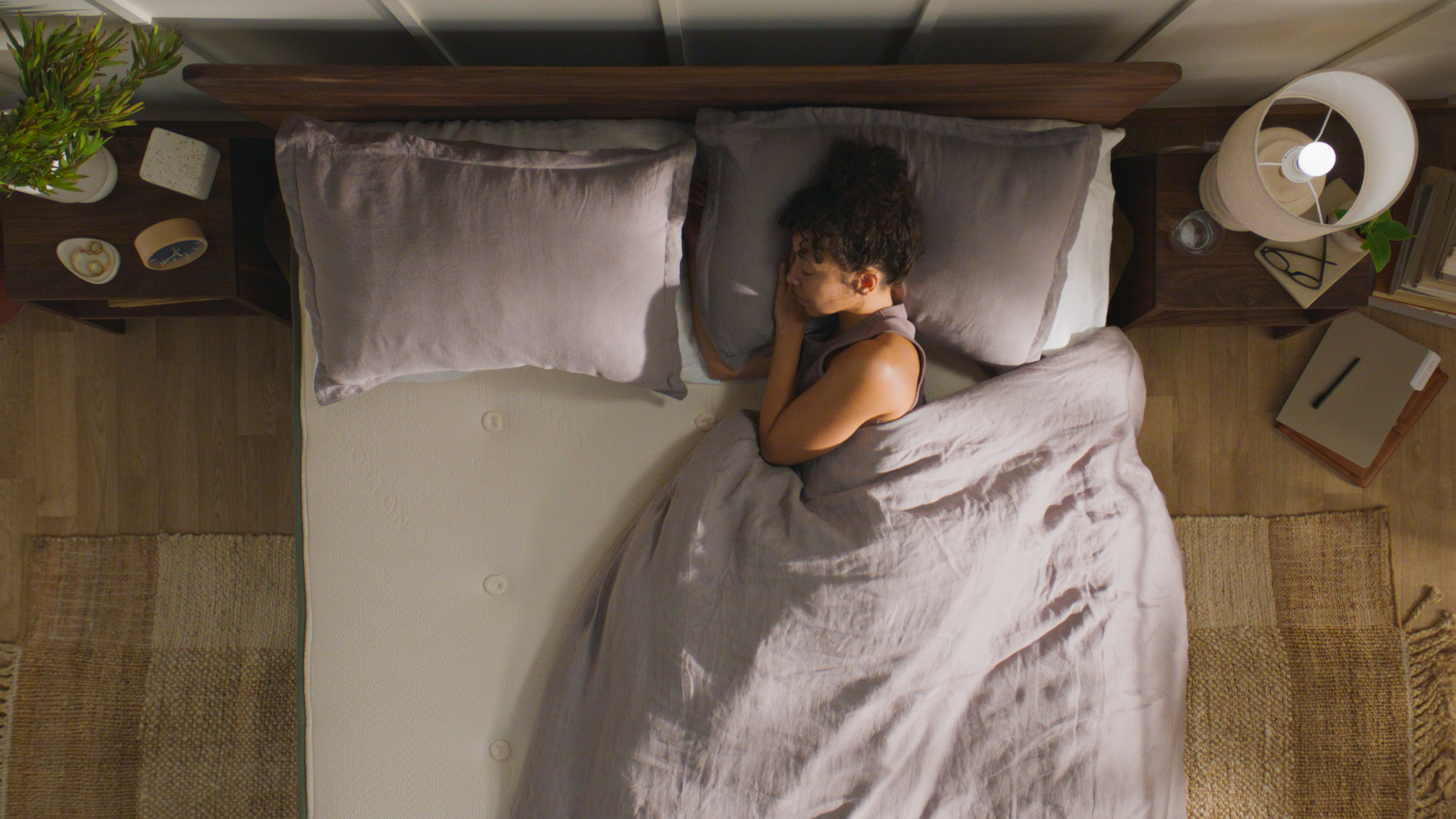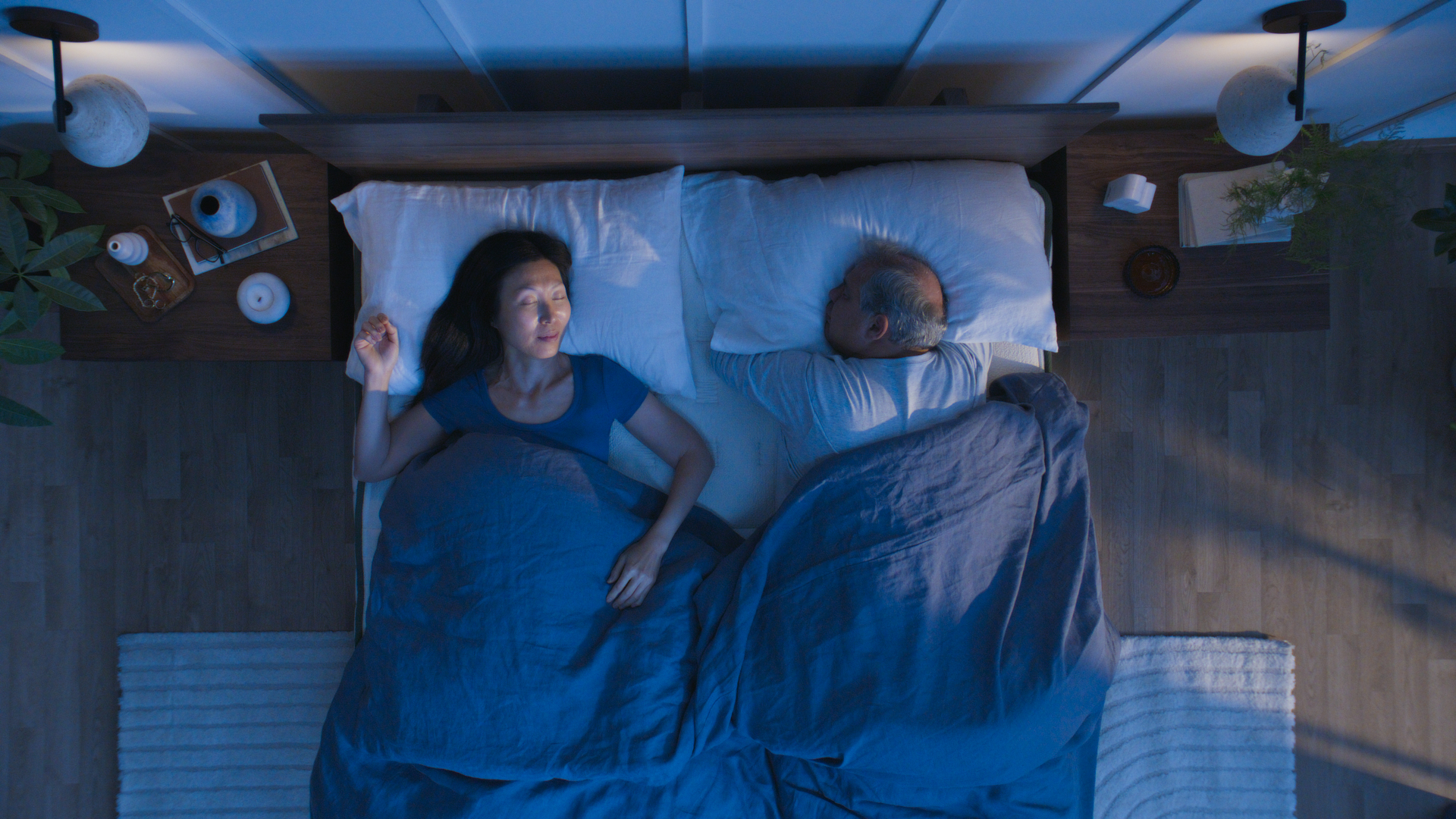Something happens when we all turn our lights off, pull up our covers, and drift off to sleep. Darkness descends amongst us, and the night comes alive. The time between midnight and 4 a.m. is when some may feel everything slows down, the noise of the day fades, and the world stands still. For those who are brave enough to stay awake into the wee hours of the night, it’s believed to be a time when ghosts walk among us, witches gather, and spirits stir, a true witching hour.
But spooky folklore and all-night benders aside, have you ever thought about the witching hour inside our bodies? What’s really happening to us between the hours of midnight and 4 a.m. when we go to sleep? Let’s take a look.

Read More: Is “Girl Dinner” Ruining Your Sleep? Let’s See What The Science Says
Why We Feel Weary During the Witching Hour
Hollywood has done a pretty good job marketing the witching hour as a time when you don’t want to be awake. As we’ve seen in countless scary movies, never go in the basement, don’t come out from under the covers, and nothing good happens after midnight.
Scary movies aside, there’s a reason why you may feel a bit weary if you find yourself suddenly awake in the hours between 3 and 4 a.m., the witching hour, and when supernatural beings are believed to be the most active.
While folklore says spirits are stirring, science shows your sleep cycle, hormones, and body temperature are actually at their most sensitive state.
According to the College of Naturopathic Medicine, our bodies follow an energetic schedule known as the Chinese Body Clock, and these patterns are our body’s way of signaling something to us. This body clock maps the flow of energy or Qi through our organ systems, determining when they’re most active or vulnerable. Between the hours of 1 and 3 a.m., not only is this a time when we should be deeply asleep, but our liver is hard at work detoxifying both our physical and emotional experiences of the day.
Perhaps you’re one of the unlucky ones who finds yourself more awake than asleep in the witching hour. If that is the case, it could be your liver trying to tell you something, according to CNM.
While the Chinese body clock reflects an ancient energetic view of the body, western sleep science points to another reason for 3 a.m. wake-ups: our internal circadian rhythm and hormones are shifting at that exact window.
What’s Really Happening in Your Body
We’ve all been told at some point or another the importance of getting enough sleep. We can assume sleep gives the body time to repair, recover, and process, but what’s really happening under that surface?
Shifts in body temperature: According to the Sleep Foundation, your core body temperature is at its lowest, which ultimately helps you sleep more deeply, but it also makes you more sensitive to noise, movement, and temperature shifts.
Saying hello (or goodbye) to REM cycle: Your body may experience a REM cycle three to four nights throughout the night. As the night goes on, our REM cycles get longer and deep sleep periods get shorter, which is why the 3–4 a.m. window is a common “wake point.”
High melatonin: Melatonin is a hormone your brain naturally produces to help regulate your sleep cycle. According to the Johns Hopkins, The Science of Sleep, one of the main functions of our circadian rhythms is melatonin production. When there’s no light, your body’s biological clock signals to your body to increase melatonin production and to turn it off when it senses light. If you’ve ever popped on your phone in the middle of the night for a quick social media scroll because you can’t sleep, you quickly found out it played no part in helping you fall back asleep.
You’ve Become BFFs with 3 AM, Now What?
First, don’t panic. The ghouls aren’t out to get you. There are a few small shifts you can make to find yourself snoozing past your 3 a.m. body alarm and on your way to a deeper night’s rest.
Take into consideration your environmental factors. They may seem small at the time or even unnoticeable, but you’d be surprised by how much these little things can affect your sleep or cause micro-awakening.
Start by considering:
- What is causing you to wake up in the middle of the night?
- Tune into your body temperature, are you overheated? Cold? Constricted?
- Do you have any light pollution in your bedroom? Audit your window coverings, night lights, or even charging plugs.
- Are there any animals (or snoring partners) in your household who could be disrupting your sleep?
- What time do you typically finish eating your last meal before going to bed?
Once you have a better idea of what’s causing your witching hour wakefulness, you can begin to address it. But, for now, here’s a few places to get started.

Read More: Why Natural Materials Sleep Cooler Than Synthetics
Opt for breathable, natural bedding: As we drift off to sleep, our body’s copy temperature begins to drop signaling it’s time to rest. An all too warm sleeping environment can cause restlessness. Opting for more breathable, natural bedding can make a big difference. Not only are they moisture-wicking but also thermal regulating.
- Consider starting at the base of your bed; your mattress. What kind of materials is it made with? You might want to think about opting for a mattress made with natural latex versus synthetic.
- Next up: your bedsheets. If you’re hot and stifled in the middle of the night, you might need something that sleeps cool. Try organic cotton sheets or natural linen sheets for a more cool and breathable night’s sleep.
- *Extra Tip: Keep your room cool. The sweet spot temperature lies between 65 and 68 degrees Fahrenheit. Turning the thermostat down at night can help to reduce heat build-up during the day.
Limit late-night eating and alcohol: As much as that late-night bowl of ice cream or nightcap sounds, try to avoid it. Our gut microbiome plays a huge role in regulating our sleep as it contributes to melatonin production, inflammation, stress, and digestive comfort. If you can, try to:
- Avoid highly processed foods: We all know the drill here. It doesn’t help eating foods low in fiber, or packed with sugar and refined carbs. Our body needs to work overtime to process these types of foods.
- Stay away from spicy foods: Lunchtime? Sure. But eating spice foods too close to bedtime can lead to indigestion or worse, keep you awake.
- Say no to that afternoon coffee: Those who say an afternoon latte doesn’t affect their sleep may not feel the direct effects of this late-day indulgence, but their gut sure does.
- Aim to eat 2-3 hours before bed: Eating your last meal well before bedtime gives your body enough time to digest.
Try calming cues: Have you ever tried going to sleep after a stressful day at work? Perhaps you find yourself lying in bed staying up late because you’re running through mental checklists, responding to that dinner invite, or planning your next trip. Chances are, a restful night’s sleep isn’t what followed. When we’re stressed, our sympathetic nervous system is activated, increasing our heart rate and blood pressure which can disrupt our sleep.
Developing a consistent nighttime routine as you start to wind down will help signal to your body, rest is imminent. But…with all that said, you may find your mind activated at the least helpful time, like in the middle of the night, and if that ever happens, it can help to try some calming cues like:
- Soft, slow music or even nature sounds to help slow your heart rate and relax your body.
- Visualizing a peaceful landscape or setting. Challenge yourself to engage in as many sense as you can to immerse yourself in that place.
- Just a few minutes of mindful breathing; in through the nose and out through the mouth can ease your body and mind into a more relaxed state.
Go screen-free: As we discovered earlier, exposing yourself to light (especially blue light from TV or our phones) right before bed can delay melatonin production and disrupt sleep. Try to go screen-free by swapping your Netflix binge with something like:
- Immersing yourself in a good book.
- Taking up a new creative hobby like knitting, painting or working on a puzzle.
- Taking a relaxing bath before bed.
There’s no one-size-fits-all when it comes to optimizing your sleep, but if you can focus on a few small changes, you may be surprised by the noticeable shifts you experience in your sleep cycle.
If, after making these adjustments, these 3 a.m. wakeups become more frequent, you could be experiencing insomnia, and it may be a good idea to reach out to your healthcare provider.
There’s Nothing Scary About the Witching Hour
Think of the witching hour not as a haunting, but a reminder to listen to your body. Because with the right habits before your head hits the pillow, you can find yourself sleeping straight through to sunrise.

Read More: 12 Grounding Techniques to Calm Your Mind
Have feedback on our story? Email [email protected] to let us know what you think!

Shop Pillows
The Essential Organic Pillow Collection
Gentle, breathable, non-toxic support.







